Tumult and majesty
by Lucy Scholes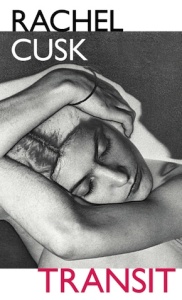 Looking back on an eye-opening year in literature and politics, I winnow down my favourite books of 2016 and pick out some of the spring 2017 titles that have so far caught my eye. It’s a captivating mix of reliable favourites, new voices, and authors striking out on a new path.
Looking back on an eye-opening year in literature and politics, I winnow down my favourite books of 2016 and pick out some of the spring 2017 titles that have so far caught my eye. It’s a captivating mix of reliable favourites, new voices, and authors striking out on a new path.
MY 2016 TOP TEN
Transit by Rachel Cusk (Jonathan Cape)
Rather than tell a ‘story’ in the traditional sense, Transit (the second novel in a trilogy begun with Outline) presents a series of vignettes in the life of the novel’s central protagonist, a writer named Faye who’s just moved into a London flat with her two sons following the break-up of her marriage. It’s a bold narrative premise, but Cusk has never been a shy writer and the end result is as enthralling as it is radical.
What Belongs to You by Garth Greenwell (Picador)
Once in a while a novel comes along that, for want of a better description, quite simply blows you away. This was how I felt when I read Greenwell’s debut, the story of a young American man teaching high school English in Sofia who becomes enamoured with a Bulgarian hustler he meets cruising for sex in the public bathrooms beneath the city’s National Palace of Culture. Greenwell’s prose is breathtakingly beautiful, and his examination of desire nothing short of majestic.
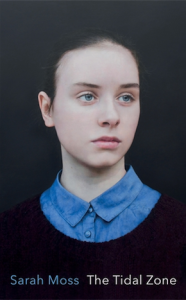 The Tidal Zone by Sarah Moss (Granta)
The Tidal Zone by Sarah Moss (Granta)
In a departure from her recent historical novels – the wonderful Bodies of Light and Signs for Lost Children – Moss returns to the contemporary in her latest work. It’s a novel about an ordinary family coping with life – one potentially life-changing event, and big topics such as parenthood, mortality, gender politics and the NHS, but also the quotidian details of day-to-day existence. Quite simply stunning.
The Argonauts by Maggie Nelson (Melville House)
Erudite but always accessible, Nelson’s memoir about queer family-making – motherhood, desire, identity, feminism – is a ferocious powerhouse of a book. Whether she’s simply defying the traditional boundaries between genres or completely reinventing them anew, I’m not yet sure. All I know is that I can’t recommend her writing highly enough.
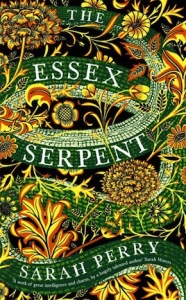 The Essex Serpent by Sarah Perry (Serpent’s Tail)
The Essex Serpent by Sarah Perry (Serpent’s Tail)
Science, religion and superstition battle it out on the Essex Marshes in Perry’s fin-de-siècle-set Gothic novel about a burgeoning friendship between intrepid amateur paleontologist, Cora Seaborne, and vicar of the coastal parish of Aldwinter, William Ransome. Perry’s prose is sublime, her characters beautifully drawn and their desires and beliefs all deeply felt, and her evocations of the Essex landscape are delicately stunning.
Problems by Jade Sharma (Coffee House Press/Emily Books)
This was such a great discovery, a debut novel and the first offering from an inspired collaboration between American indie publishers Coffee House Press and Emily Books that brings original, transgressive and genre-blurring writing to print. Maya’s problems just keep on growing – her increasingly challenging heroine addiction, her failing marriage, her failing affair and a dead-end job, to name but the most pressing. The premise might be familiar – though it’s more Trainspotting than Girls to quote the mash-up given on the blurb – but Sharma is as witty and clever a writer as she is fearless, and this novel is a complete original.
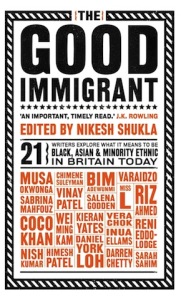 The Good Immigrant edited by Nikesh Shukla (Unbound)
The Good Immigrant edited by Nikesh Shukla (Unbound)
Timely and important but also showcasing a wonderful chorus of intelligent, funny and informative voices, The Good Immigrant might actually be the perfect Christmas gift. Shukla has gathered twenty-one British black, Asian or minority ethnic writers who turn the dangerous stereotype of the ‘bad immigrant’ on its head. Based purely on the quality of the writing, buy it for all your liberal friends; and in the hope it might actually change some minds, also get copies for anyone who’s fallen for the anti-immigration rhetoric that’s sadly swept the nation this year.
Nonstop Metropolis: A New York City Atlas by Rebecca Solnit and Joshua Jelly-Schapiro (University of California Press)
A truly original and inventive literary project – one would expect nothing else from Solnit – this collection of essays, maps and images is as multilayered and populous as the city it’s describing. The third and final volume in Solnit’s series – San Francisco and New Orleans have come before – Nonstop Metropolis proves without doubt that books, both as beautiful objects and the source of some of our most innovative cultural thinking, are far from a dying breed.
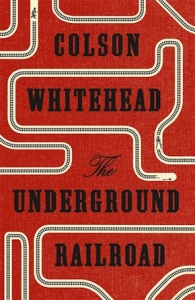 I’m Supposed to Protect You From All This by Nadja Spiegelman
I’m Supposed to Protect You From All This by Nadja Spiegelman
(Text Publishing Company)
This fascinating memoir provides a meditation on the unreliability of memory via the stories of four generations of fraught mother-daughter relationships. It’s intelligently conceived and beautifully written by an author with memoir writing in her blood (her father is Art Spiegelman of Maus fame).
The Underground Railroad by Colson Whitehead (Fleet)
One of the official ‘hits’ of the year, with everyone from Barak Obama and Oprah Winfrey to the person sitting next to you on the bus, Whitehead’s reimagining of the network of abolitionists who helped African-American slaves escape their servitude as an actual subterranean railway system is inspired. It’s a hugely important historical novel, but it also makes for absolutely thrilling (and more than occasionally horrific) reading: one of the most intelligent page-turners you’ll ever read.
THE BEST OF THE REST
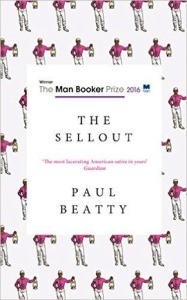 An obvious pick, but still a worthy stand-out, was this year’s Man Booker Prize winner, Paul Beatty’s The Sellout (Oneworld), the most biting and hilarious satire about race to come out of America in recent years, and a brilliant and radical choice for the prestigious prize’s first American winner. Other novels hot on the heels of those listed above are Elizabeth Strout’s Man Booker longlisted My Name is Lucy Barton (Viking), which captures the delicate and moving nuances of a life of deprivation and loneliness; and Louise Erdrich’s LaRose (Corsair), the story of “an old form of justice” enacted on a North Dakota Native American reservation when one man accidentally kills his neighbour’s child, and offers up his own son in the dead boy’s place. A last-minute addition is historical novel Margaret the First (Scribe) by Danielle Dutton (who also runs the American indie publisher The Dorothy Project), a dramatisation of episodes in the life of Margaret Cavendish, the 17th-century writer, feminist and aristocrat/celebrity.
An obvious pick, but still a worthy stand-out, was this year’s Man Booker Prize winner, Paul Beatty’s The Sellout (Oneworld), the most biting and hilarious satire about race to come out of America in recent years, and a brilliant and radical choice for the prestigious prize’s first American winner. Other novels hot on the heels of those listed above are Elizabeth Strout’s Man Booker longlisted My Name is Lucy Barton (Viking), which captures the delicate and moving nuances of a life of deprivation and loneliness; and Louise Erdrich’s LaRose (Corsair), the story of “an old form of justice” enacted on a North Dakota Native American reservation when one man accidentally kills his neighbour’s child, and offers up his own son in the dead boy’s place. A last-minute addition is historical novel Margaret the First (Scribe) by Danielle Dutton (who also runs the American indie publisher The Dorothy Project), a dramatisation of episodes in the life of Margaret Cavendish, the 17th-century writer, feminist and aristocrat/celebrity.
American novelist and essayist Siri Hustvedt took the title of her last novel The Blazing World from the proto-sci-fi prose piece that made Cavendish’s name, so it’s apt that Hustvedt’s thought-provoking and elegantly written new collection of essays, A Woman Looking at Men Looking at Women: Essays on Art, Sex and the Mind (Sceptre) also makes the cut. Other non-fiction titles that stood out from the rest were Lauren Redniss’s stunning graphic non-fiction work, Thunder and Lightning: Weather Past, Present and Future (Jonathan Cape), natural science writing by means of beautifully illustrated visual storytelling; and Olivia Laing’s much-applauded The Lonely City: Adventures in the Art of Being Alone (Canongate), a meditation on urban loneliness in NYC, the city that supposedly never sleeps, through a beguiling combination of first-person memoir, the biographies of various artists and art criticism. Lauren Elkin employed a similar model in Flâneuse: Women Walk the City in Paris, New York, Tokyo, Venice and London (Chatto & Windus), an intelligent and impassioned meander through cultural history, biography, literary criticism, urban topography and memoir that explores this important but much contested female figure.
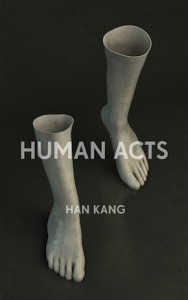 I also want to mention two straight-up memoirs: Negroland (Granta) by the award-winning African-American critic Margot Jefferson, which looks at feminism, class and race through Jefferson’s experience of growing up amongst the black elite in Chicago in the 1950s and ’60s; and What Language Do I Dream In? (Virago), author and editor of Pushkin Press’s ONE imprint Elena Lappin’s moving story of a life lived in five languages.
I also want to mention two straight-up memoirs: Negroland (Granta) by the award-winning African-American critic Margot Jefferson, which looks at feminism, class and race through Jefferson’s experience of growing up amongst the black elite in Chicago in the 1950s and ’60s; and What Language Do I Dream In? (Virago), author and editor of Pushkin Press’s ONE imprint Elena Lappin’s moving story of a life lived in five languages.
When it comes to novels in translation, three titles stood out from the rest: Human Acts (Granta) by Han Kang, translated from the Korean by Deborah Smith (the impressive follow-up to her Man Booker International prize-winner The Vegetarian), which tells the violent and bloody story of the Gwangju uprisings in South Korea in 1980; The Winterlings (Scribe) by Cristina Sánchez-Andrade, translated from the Spanish by Samuel Rutter, which is set in rural Galicia in the 1950s where the magic of the movies meets the mystery of folklore, but echoes the strange, surreal work of Flannery O’Connor; and Affections by Rodrigo Hasbún, translated by Sophie Hughes (Pushkin Press), the story of the Ertl family’s years in Bolivia – Hans Ertl, ‘Rommel’s photographer’ and collaborator with and lover of the infamous Leni Riefenstahl, fled to La Paz with his family after the Second World War, where his daughter Monika later joined Che Guevara’s guerillas and became the most wanted woman in Latin America.
Then there was novelist and playwright Lucy Caldwell’s dazzling short story collection Multitudes (Faber). And one of Caldwell’s stories also appeared in the brilliant collection The Glass Shore (New Island Books), short stories written by Northern Irish women writers, edited by Sinéad Gleeson, the follow-up to last year’s The Long Gaze Back. And last but not least, we were treated to some much needed light relief in the form of Nina Stibbe’s gloriously funny second novel, Paradise Lodge (Viking), which continued to follow the ups and downs of Lizzie Vogel and her family (whom we first met in Stibbe’s Man at the Helm) now she’s a teenager bunking off school to work in the local old people’s home.
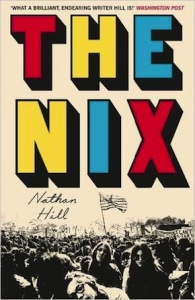 Spring 2017 highlights
Spring 2017 highlights
Predicting next year’s big hits is always a game of hit-and-miss, but the first half of 2017 offers some exciting potentials. January, for example, looks set to get the next twelve months off to a fine start, especially when it comes to titles from Picador. They’re publishing two highly hyped debuts, Emma Flint’s Little Deaths, the story (based on real-life events) of a mother accused of murdering her children in Queens in the summer of 1965; and Nathan Hill’s The Nix, which, according to John Irving ticks all the boxes you could want: “a mother-son psychodrama with ghosts and politics”. They’re also publishing American author Dana Spiotta’s Innocents and Others, the story of the friendship between two women filmmakers, which won significant praise when it came out in the US earlier this year.
Fourth Estate are also beginning the year with a couple of great American titles: Michael Chabon’s Moonglow, intriguingly described by his publishers as “a work of fictional non-fiction, an autobiography wrapped in a novel disguised as a memoir”; and Alexandra Kleeman’s debut novel, You Too Can Have a Body Like Mine, which examines the lure of consumer culture and our growing obsession with body image.
Samantha Ellis’s follow-up to her wonderful bibliomemoir How to be a Heroine also appears in January. Take Courage: Anne Brontë and the Art of Life (Chatto & Windus) combines memoir with biography and literary criticism as Ellis charts her journey discovering the joys of the work of the lesser-known Brontë sister.
Come February I have my eye on Sheila Kohler’s memoir Once We Were Sisters (Canongate). If this examination of the sibling bond – Kohler’s sister Maxine was killed when her husband drove their car off the road – is anywhere near as good as her novel Cracks, it’ll be a wonderful read. I’m also intrigued by Lutz Seiler’s Kruso (Scribe), translated by Tess Lewis. A bestseller in Germany, it’s inspired by Defoe’s Robinson Crusoe, but set in 1989 on the Baltic island of Hiddensee. Then there’s Tim Murphy’s Christodora (Picador), an ambitiously bold New York novel that tells the stories of the heroes and victims of the AIDS crisis through four decades of art, love and activism.
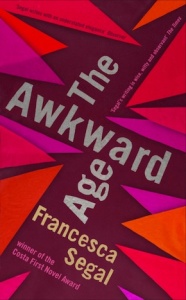 March brings a couple of eagerly anticipated non-fiction titles. Firstly South and West: From a Notebook (Knopf) by Joan Didion, two never before published pieces, one written about a road trip she and her husband took through Louisiana, Mississippi and Alabama in 1970; the other Didion’s reporting on the Patty Hearst trial in 1976. Then there’s New Yorker staff writer Ariel Levy’s memoir The Rules Do Not Apply (Fleet), the story of a life lived brazenly unconventionally until a string of losses leaves her floundering.
March brings a couple of eagerly anticipated non-fiction titles. Firstly South and West: From a Notebook (Knopf) by Joan Didion, two never before published pieces, one written about a road trip she and her husband took through Louisiana, Mississippi and Alabama in 1970; the other Didion’s reporting on the Patty Hearst trial in 1976. Then there’s New Yorker staff writer Ariel Levy’s memoir The Rules Do Not Apply (Fleet), the story of a life lived brazenly unconventionally until a string of losses leaves her floundering.
In April, Simon Wroe’s Here Comes Trouble (Weidenfeld & Nicolson) hits the shelves, a darkly comic novel in the vein of Gary Shteyngart’s Absurdistan, set in the fictional Eastern European country of Kyrzbekistan, to which the Foreign Office advises against travel. May brings Francesca Segal’s second novel The Awkward Age (Chatto & Windus), a story of domestic complications in a blended family when two step-siblings get closer than is comfortable. Segal’s debut The Innocents was a glorious retelling of Edith Wharton’s The Age of Innocence, and won a host of prizes, so I’m excited to see how she’s followed it. Then there’s Olivia Sudjic’s debut novel Sympathy (ONE), a tale of obsession and doubling in the digital age.
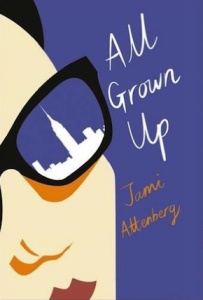 And finally, two June titles worth looking out for: Maggie Nelson’s Bluets (Jonathan Cape), reflections on the colour blue, which was originally published in the US back in 2009 and is sure to go down a treat with British fans of The Argonauts; and the new novel from Jami Attenberg – author of The Middlesteins and Saint Mazie – All Grown Up (Serpent’s Tail), the heroine of which is a single, childless 40-something woman in NYC, but cleverly turns all the associated clichés on their head. It’s angry, sad and raw but also smart, funny and hopeful, not to mention probably the best thing Attenberg’s written.
And finally, two June titles worth looking out for: Maggie Nelson’s Bluets (Jonathan Cape), reflections on the colour blue, which was originally published in the US back in 2009 and is sure to go down a treat with British fans of The Argonauts; and the new novel from Jami Attenberg – author of The Middlesteins and Saint Mazie – All Grown Up (Serpent’s Tail), the heroine of which is a single, childless 40-something woman in NYC, but cleverly turns all the associated clichés on their head. It’s angry, sad and raw but also smart, funny and hopeful, not to mention probably the best thing Attenberg’s written.
Lucy Scholes is a contributing editor to Bookanista and a literary critic and book reviewer for publications including the Daily Beast, the Independent, the Observer, BBC Culture and the TLS. She also teaches courses at Tate Modern, Tate Britain, the BFI and Waterstones Piccadilly.
@LucyScholes

